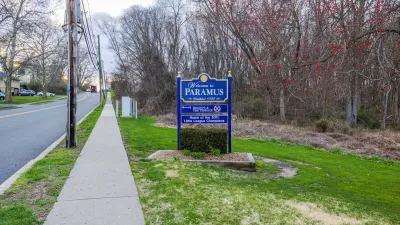A new report highlights a growing affordability crisis, calling for state-level zoning changes and renter protections.

Housing advocates in Connecticut are calling on state leaders to pass zoning reforms and renter protection laws “in an effort to break a ‘vicious cycle’ of evictions and homelessness exacerbated by the state’s deficit of affordable housing.”
Hugh McQuaid reports on the story for CT News Junkie, highlighting a new report from a nonprofit called Connecticut Voices for Children that assesses the challenges of affordable housing production in the state, concluding that restrictive zoning laws that privilege single-family homes are contributing to the rise in housing costs. “The CT Voices report found that Connecticut experienced a lower rate of home construction than the rest of the country since the 1990s, which has led to an increased housing cost burden that has fallen disproportionately on the state’s Black and brown families.”
The group recommends creating a statewide ‘fair share’ housing plan that tasks local jurisdictions with reducing barriers to affordable housing, similar to California’s Regional Housing Needs Allocation (RHNA).
The report also recommends streamlining the approval process for housing, reducing restrictions that limit multifamily construction, and enacting tenant protections and rent stabilization policies. Some of these proposals stalled in the state legislature last year, but CT Voices says they warrant a second look.

Alabama: Trump Terminates Settlements for Black Communities Harmed By Raw Sewage
Trump deemed the landmark civil rights agreement “illegal DEI and environmental justice policy.”

Planetizen Federal Action Tracker
A weekly monitor of how Trump’s orders and actions are impacting planners and planning in America.

Why Should We Subsidize Public Transportation?
Many public transit agencies face financial stress due to rising costs, declining fare revenue, and declining subsidies. Transit advocates must provide a strong business case for increasing public transit funding.

Understanding Road Diets
An explainer from Momentum highlights the advantages of reducing vehicle lanes in favor of more bike, transit, and pedestrian infrastructure.

New California Law Regulates Warehouse Pollution
A new law tightens building and emissions regulations for large distribution warehouses to mitigate air pollution and traffic in surrounding communities.

Phoenix Announces Opening Date for Light Rail Extension
The South Central extension will connect South Phoenix to downtown and other major hubs starting on June 7.
Urban Design for Planners 1: Software Tools
This six-course series explores essential urban design concepts using open source software and equips planners with the tools they need to participate fully in the urban design process.
Planning for Universal Design
Learn the tools for implementing Universal Design in planning regulations.
Caltrans
Smith Gee Studio
Institute for Housing and Urban Development Studies (IHS)
City of Grandview
Harvard GSD Executive Education
Toledo-Lucas County Plan Commissions
Salt Lake City
NYU Wagner Graduate School of Public Service





























